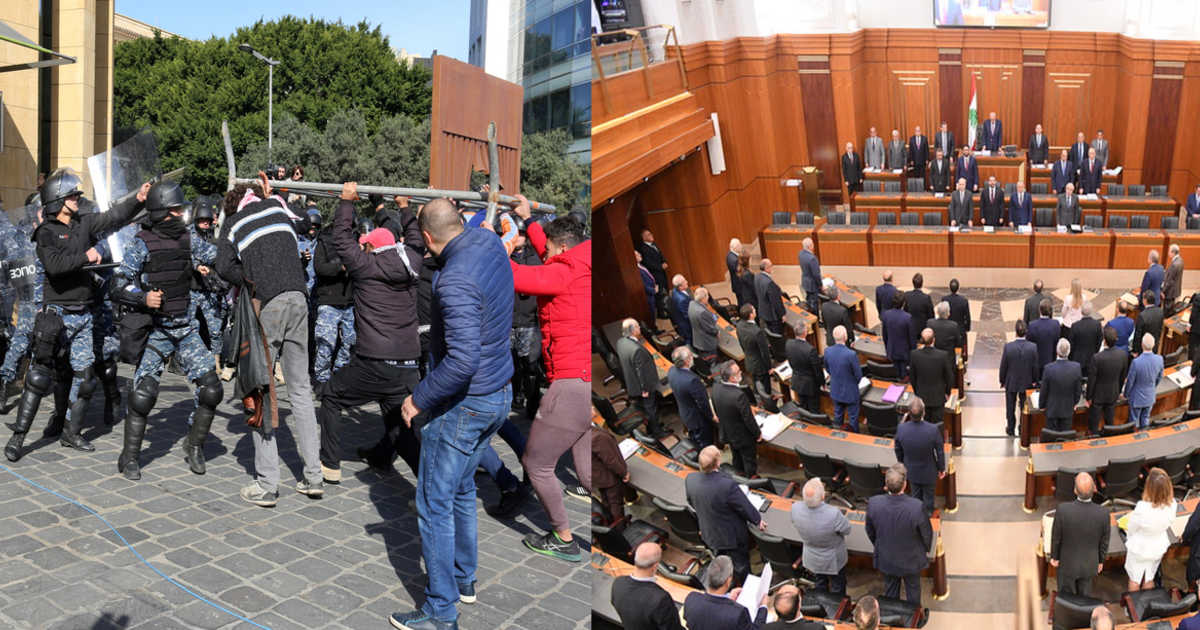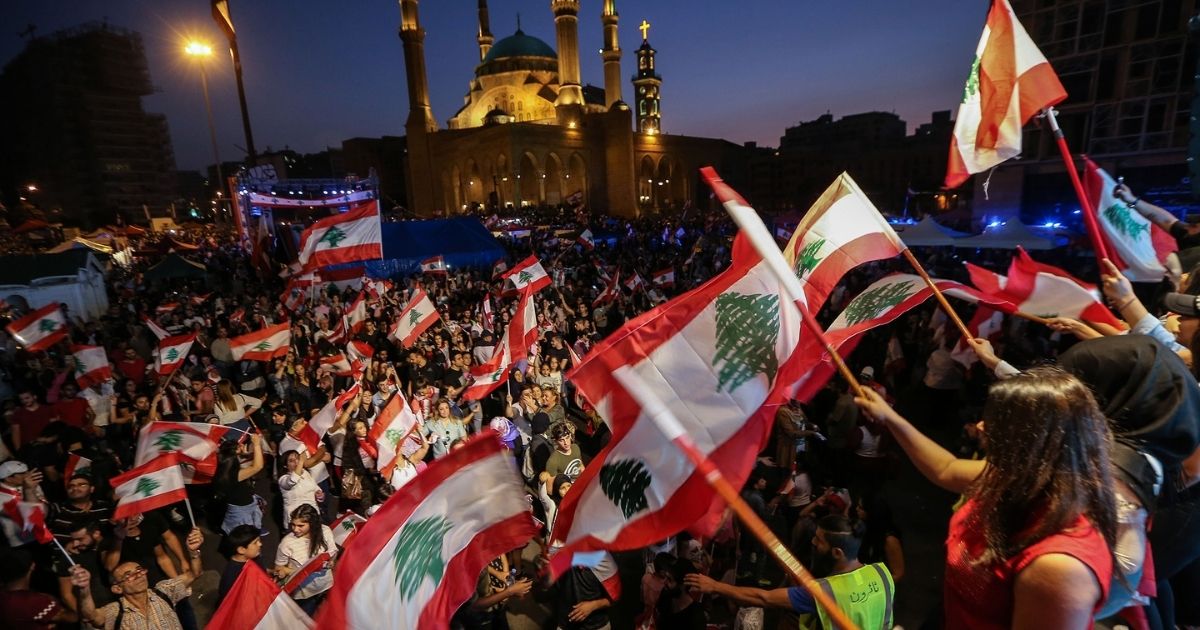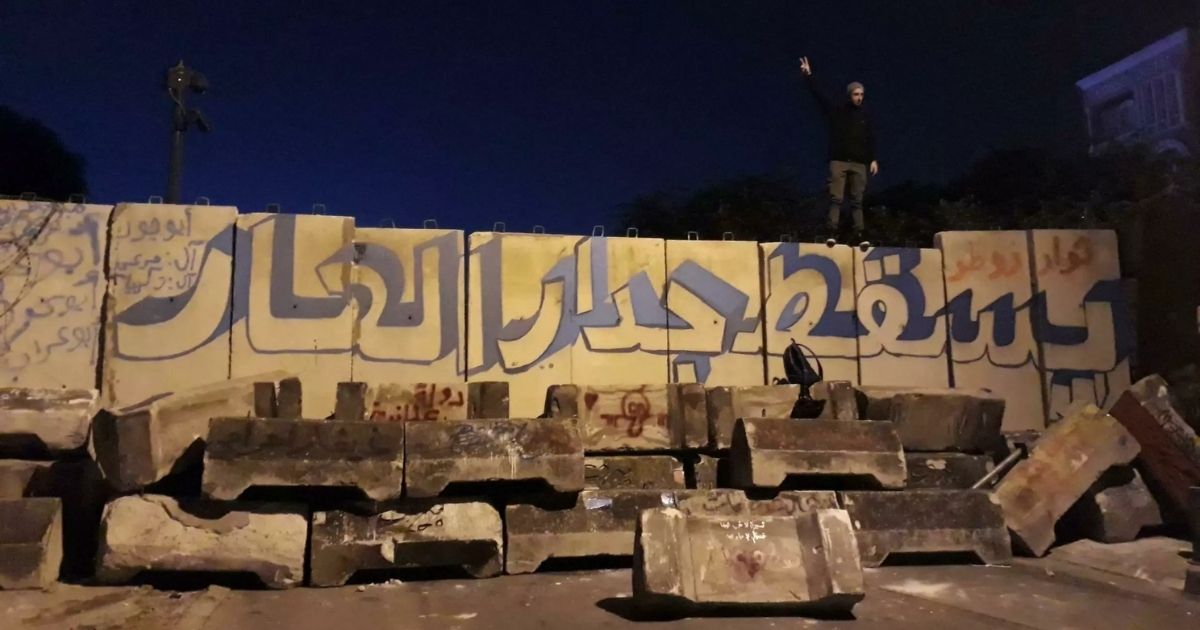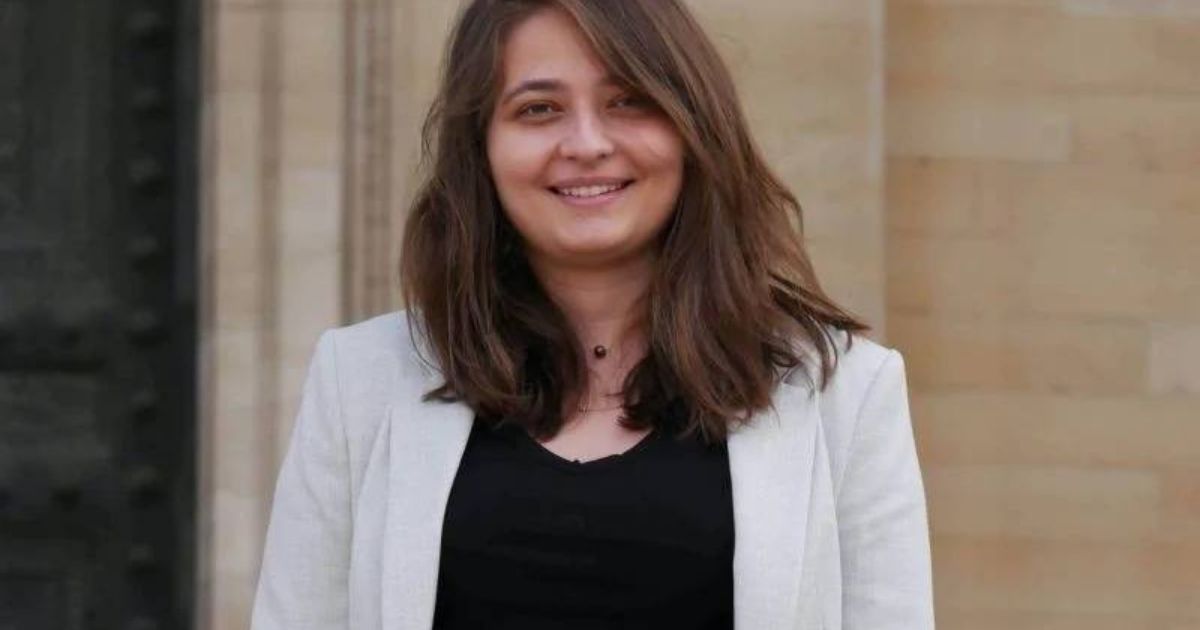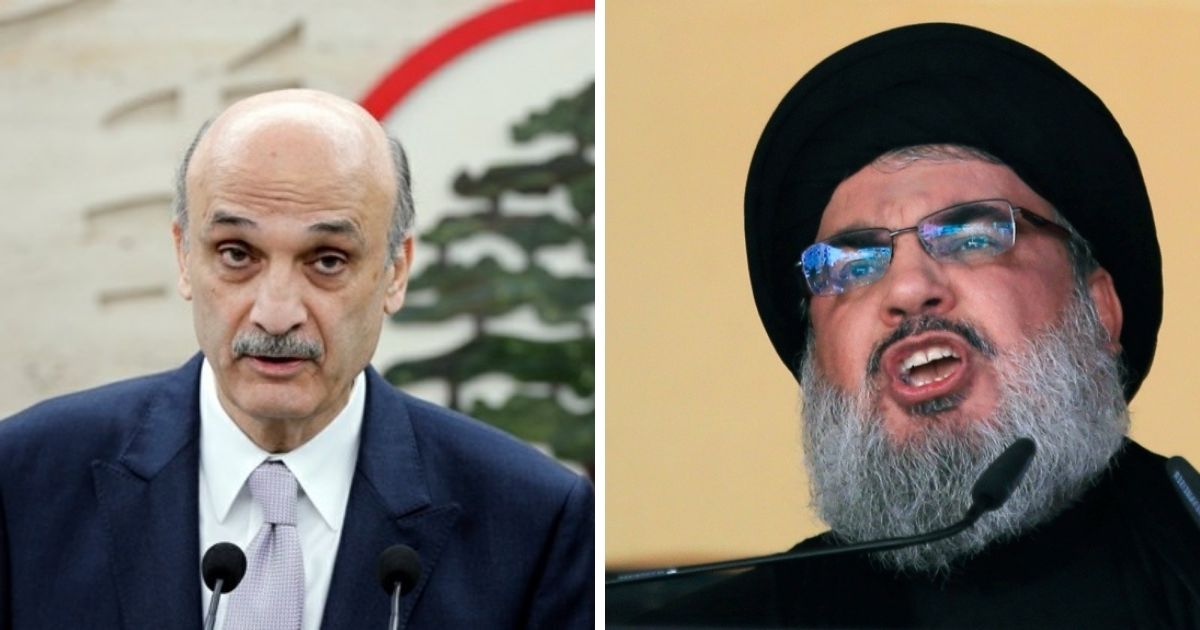Rocked by the echoing voices of the outraged protesters outside, the 128 seats of the Lebanese Parliament welcomed back their usual occupants; not all though, several boycotted the session and did not attend.
After being scheduled for Monday, January 27th, the parliamentary budget session was boycotted by several MPs, some of whom labeled it “unreasonable.”
The boycotting members, such as Paula Yacoubian, Osama Saad, Faisal Karami, and many others had varying reasons for their nonattendance.
Some implied that the session was unconstitutional in its nature because it hasn’t won the parliament’s vote of confidence, which they should have done before presenting the budget.
Others stressed that it did not represent “the street” as too obvious from the ongoing protests.
Nonetheless, the session was commenced by Speaker of Parliament Nabih Berri on Monday morning.
While these MPs refused to attend for their own reasons, the protesters were intent on denying those who showed up entry to the parliament building.
In accordance with their previously planned Human Shield, they rallied around the building and attempted to block all the entrances leading to it.
In another familiar scene, the security forces that were deployed in the perimeter of Nijmeh Square called in reinforcements after the demonstrators successfully displaced the previously-installed barbed wire in front of Annahar’s building.
Upon arriving, the riot police clashed with the protesters, resulting in 27 injuries, 8 of which were hospitalized while 19 were treated on the ground (at the time of writing), as per Lebanese Red Cross reports.
Speaking during his turn at the 2020 budget session, Prime Minister Hassan Diab addressed the problem of that session, saying: “Because the reality is exceptional, the government, before gaining confidence, cannot appear together before the parliament.”
“However, it will not hinder a budget prepared by the previous government,” Diab concluded, indicating the budget initially drafted while Saad Hariri was heading the government.
As mentioned, this Monday’s parliamentary session has been described by many Lebanese politicians as “unconstitutional” for the fact that the government has not yet gained confidence.
Nevertheless, at around 1:30 in the afternoon, in the closed session, the attending MPs began voting for the pre-proposed budget plan.
That budget was declared by the finance committee as unrealistic in its predicted revenues as it “envisages a deficit of around 7% of GD, wider than the originally hoped-for 0.6%,” according to MP Ibrahim Kanaan to Reuters.
Reuters also reported that chief economist at Byblos Bank Nassib Ghobril said that “there was consensus that revenues would decline.”
He added, “With all the changes and the impact on the economy, I think it would have been more appropriate if the new government had withdrawn the budget and made revisions to it on revenues and expenditures.”
The deficit reported by Reuters to be $4.3 billion is indeed a challenge at this time when financing looks almost impossible without foreign support, which analysts expect to be a tough struggle for the new government, especially from the Arab Gulf countries and the U.S.
On a note that might be a side one or it probably won’t soon, MP Salim Saadeh criticized the Taef Agreement during the session, saying that its “30-year honeymoon has ended,” and made a sarcastic remark, “no money, no honey.”
He blamed that agreement for the problem’s infesting Lebanon’s financial system today.
Saadeh’s catchy quote caught the attention of the people following the updates of the session and took social media by storm.
His name, as a result, became trending at #2 on Twitter in Lebanon, preceded only by مجلس_النواب# (Parliament) at #1.
